13 things you should never clean with vinegar, according to experts
Wondering what not to clean with vinegar? While it can be a brilliant natural cleaning solution, it’s not suitable for use on every surface in your home
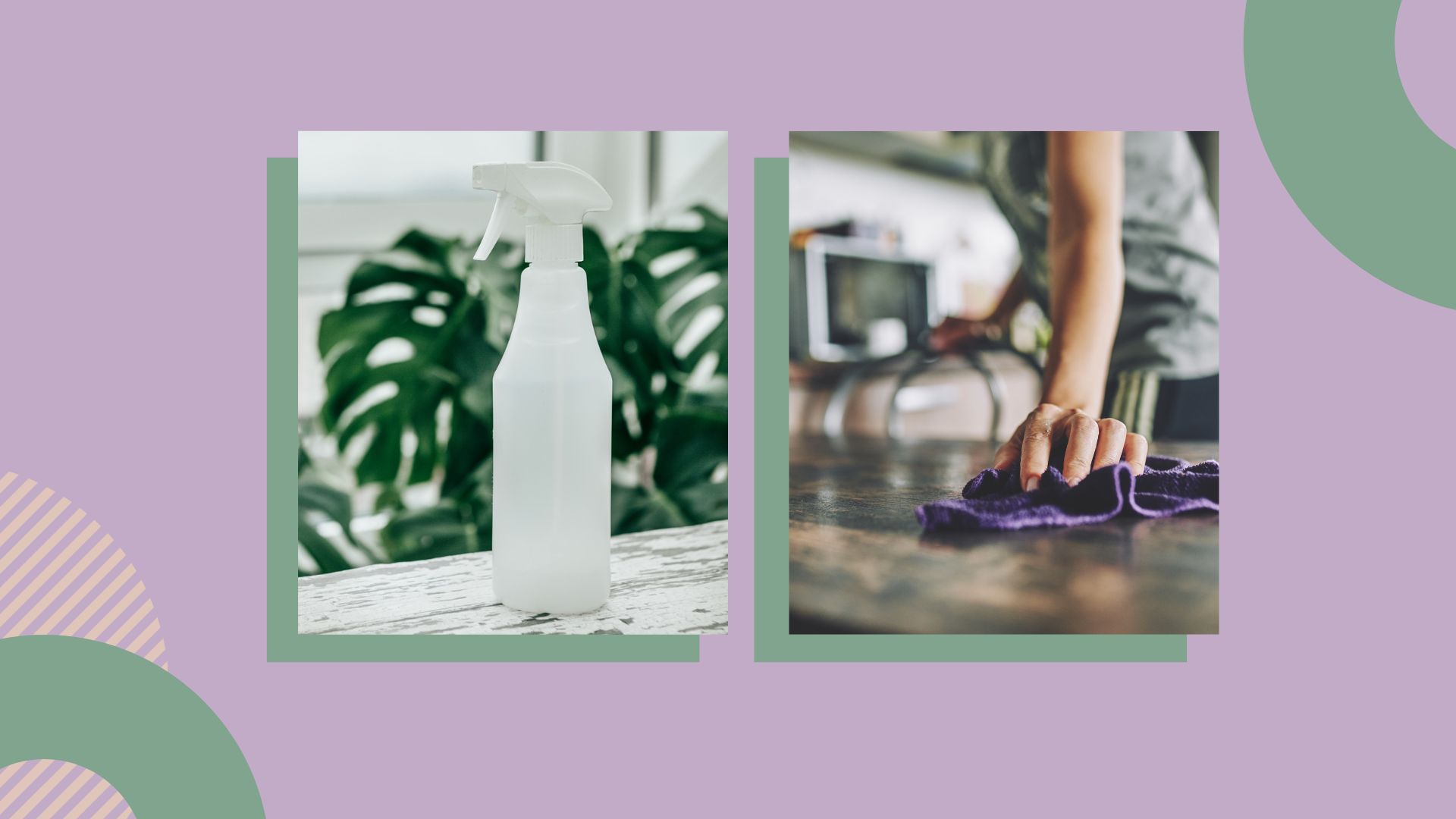
Vinegar can be a fantastic way of naturally cleaning many parts of your home, without using chemicals. But if you’re wondering what not to clean with vinegar, it’s worth noting that there are also many things that won’t stack up well when being cleaned using the acidic solution.
As part of many people’s regular kitchen cleaning or bathroom cleaning routine, it's understandable to assume that distilled white vinegar (when mixed with water) can be used for almost anything. After all, we’re always told that it’s something of a natural wonder product – and that may well be true, given that's a natural disinfectant, and can swiftly dissolve stubborn dirt and stains.
But just like with any cleaning product, it’s not suitable for all surfaces or items in your home, given that the acidic nature of vinegar can actually be damaging in some cases.
So what should you not clean with vinegar? While there are plenty of instances where cleaning with vinegar can be supremely useful, however, here are the items that you should avoid exposing to it.
What not to clean with vinegar, according to experts
As mentioned, vinegar can be a fantastic sustainable and non-toxic cleaning product option, especially if you're ticking off items on your spring cleaning checklist, or cleaning up whilst decluttering your home. But if used in the wrong places, it can lead to the quality of your items degrading over time.
Emma Lewis-Jones, product director from CookServeEnjoy tells w&h, "White vinegar is the perfect solution for a whole host of deep cleaning tasks, but when it comes to some household items, the acidity can actually cause damage."
Cleaning expert at MyJobQuote, Sarah Dempsey, explains, “Over time, vinegar can take away the shine of certain surfaces. Some surfaces may become etched and damaged with the use of vinegar. It is the acid in vinegar which can be harmful.”
Sign up to our free daily email for the latest royal and entertainment news, interesting opinion, expert advice on styling and beauty trends, and no-nonsense guides to the health and wellness questions you want answered.
Because of this, it'll pay to remember the following items when considering what not to clean with vinegar.
1. Kitchen knives
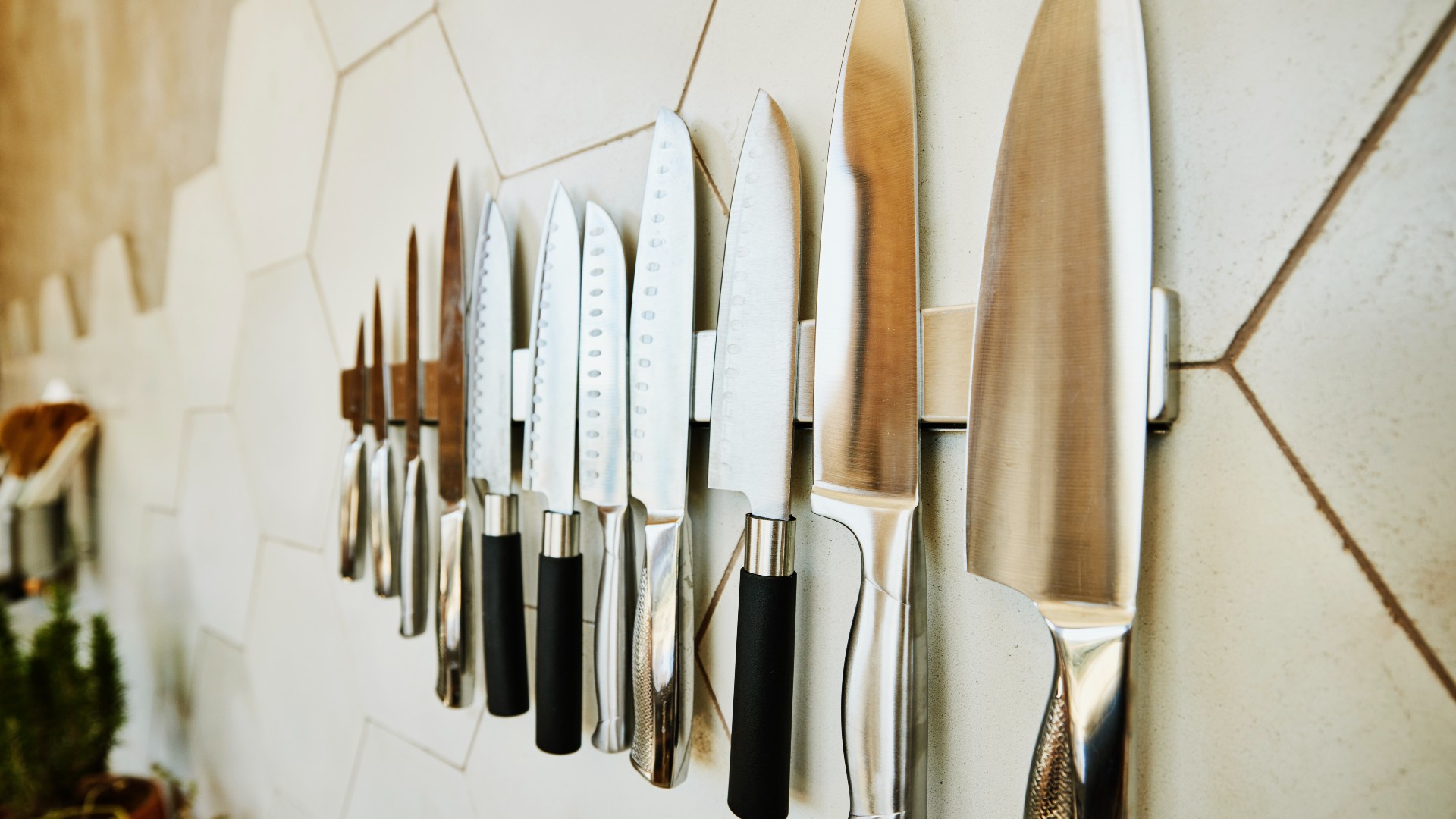
They might seem pretty hardy, but to keep your kitchen knives in good working order, avoid cleaning them with vinegar. “Cleaning your blades with vinegar is doing more harm than good; the abrasiveness of vinegar can corrode the metal, dulling the knife edges,” Emma explains. “Plus, there’s just no need! Washing them with warm soapy water is enough to get them clean.”
2. Your coffee machine
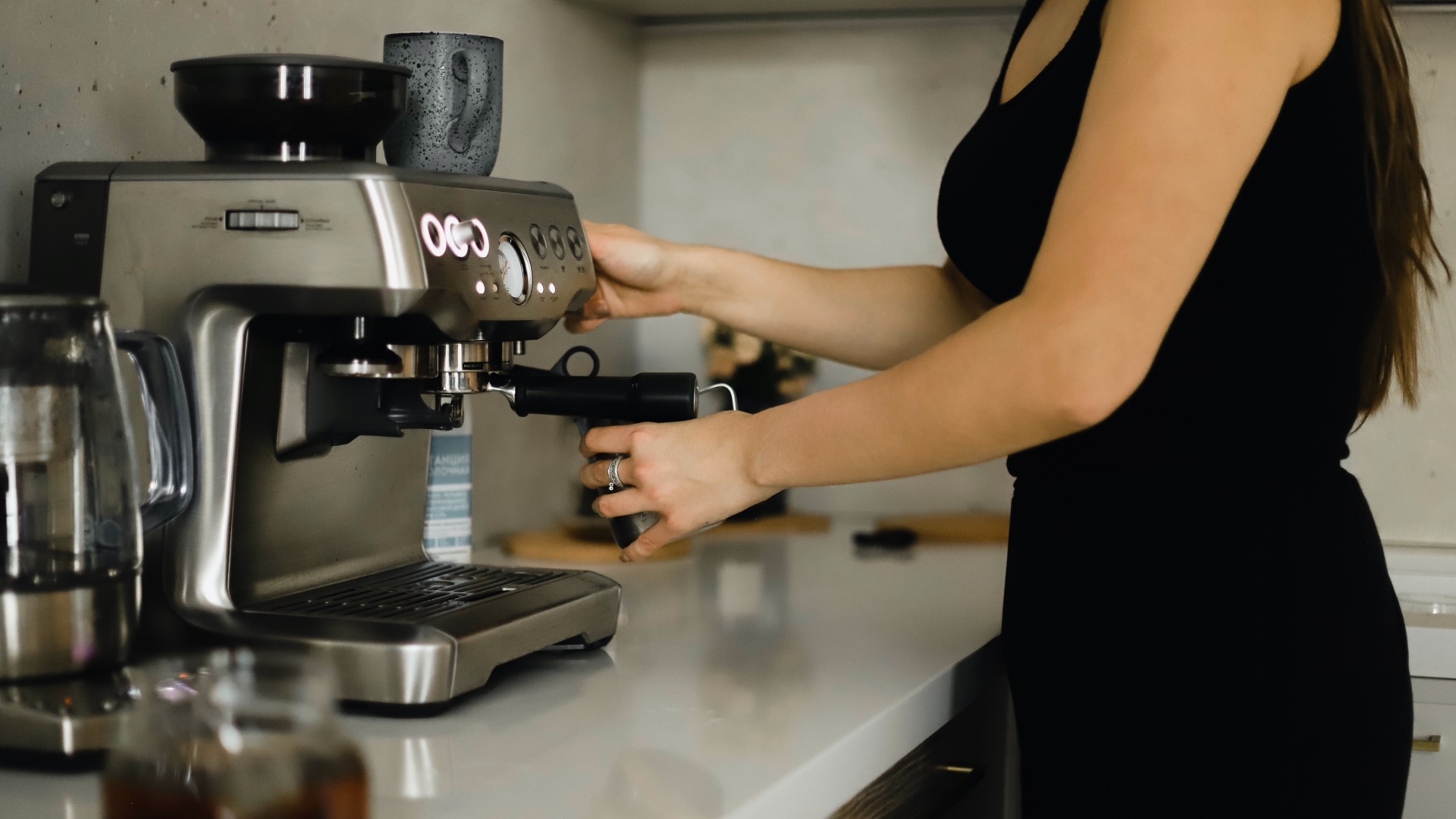
If you don’t want the taste of vinegar in your coffee (understandably), experts advise refraining from using it to clean your actual coffee machine.
“Coffee machines can be prone to a build-up of limescale, so cleaning a coffee maker with white vinegar is an option if you are looking to descale it,” Sarah said. However, she explained that the sheer strength of vinegar means that it may well linger in your machine for much longer than you intend. “It may take a lot of rinses before you stop tasting vinegar in your coffee,” she said.
Instead, use a specific descaling solution. "These usually use citric acid for cleaning, and won’t leave a lingering taste or odor," Sarah assured.
3. Your dishwasher
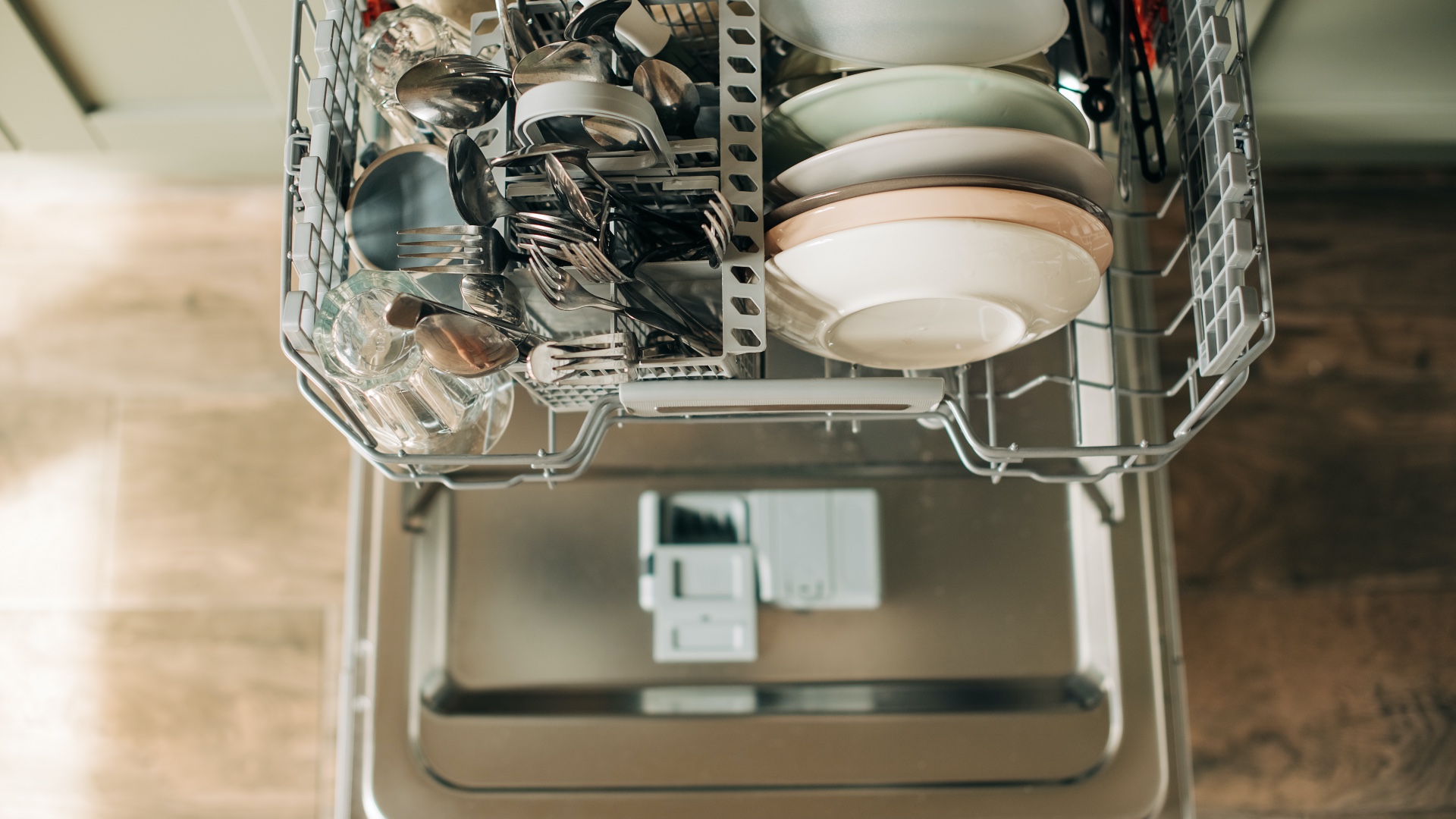
Cleaning your dishwasher with vinegar wouldn't be a disaster initially, and is actually advised by some. But other experts caution against it in order to keep your appliance in the best condition possible in the long term.
“Although there are countless articles online encouraging the cleaning of dishwashers with vinegar, the abrasive nature can potentially corrode stainless steel, and make it appear dull and discolored,” says Emma. “And, the leftover residue when you go to use your dishwasher may also discolor metal utensils and dishes eventually."
While you might be happy to give it a try, options like baking soda or dedicated dishwasher cleaning solutions can eradicate the potential risk altogether.
4. Certain kitchen countertops
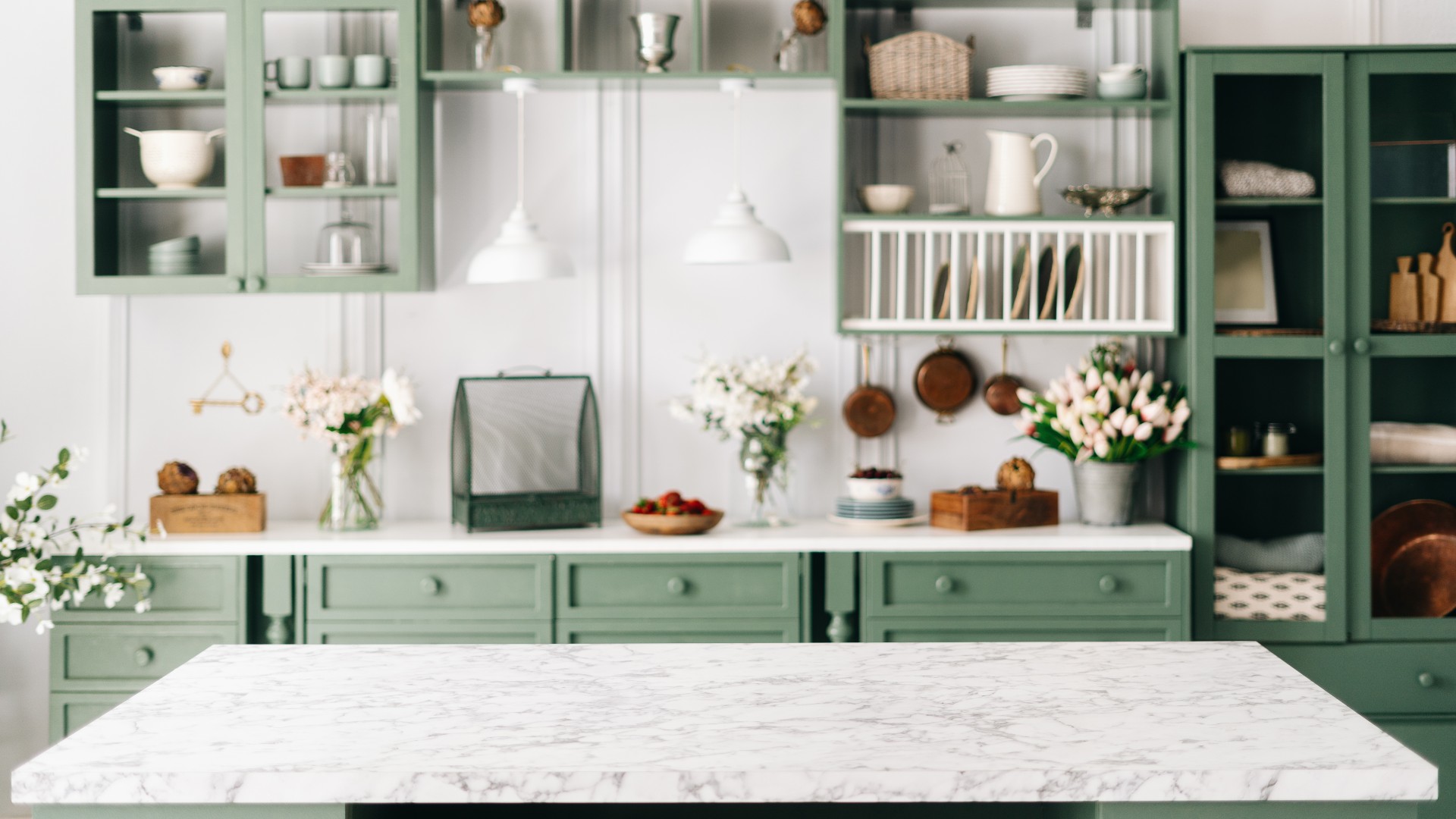
If you have what are considered to be more delicate countertops, experts advise keeping vinegar well away – specifically from surfaces like stone, waxed wood, or granite.
"The acid in the vinegar dulls and etches natural stone materials such as limestone and marble – it can make your surfaces lose their shine,” Sarah explains.
And Emma agrees, saying: “These materials react badly with the acid in vinegar, eating away at them and their sealants, and making them susceptible to water damage. Although your surfaces may initially look sparkling new, they’ll probably become dull and worn over time."
4. Hardwood floors
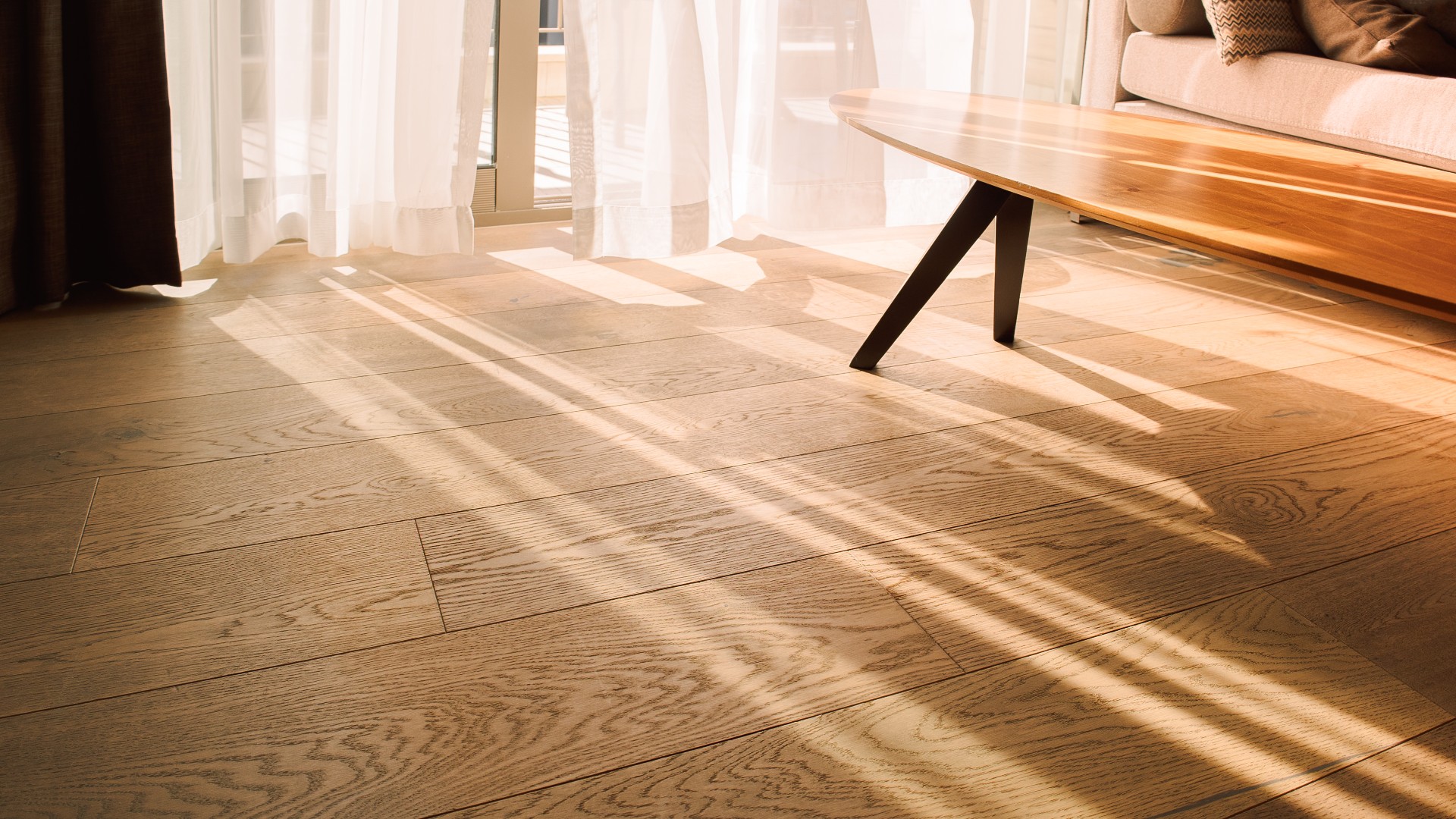
Similarly, cleaning hardwood floors with vinegar is a huge no-no, given their more delicate veneer.
Fantastic Services' cleaning supervisor Lily Cameron explains that “the acidity of white vinegar can strip away the shiny surface of hardwood flooring.”
In order to properly sanitize your hardwood floors, Lily insists that they only require a gentle cleaning option. "This type of surface should be cleaned with cleaning agents such as warm water and soap, or a specific hardwood floor cleaner. Besides that, avoid putting too much liquid or water on hardwood floors, or leaving it for too long, because it can warp the flooring.”
5. Your iron
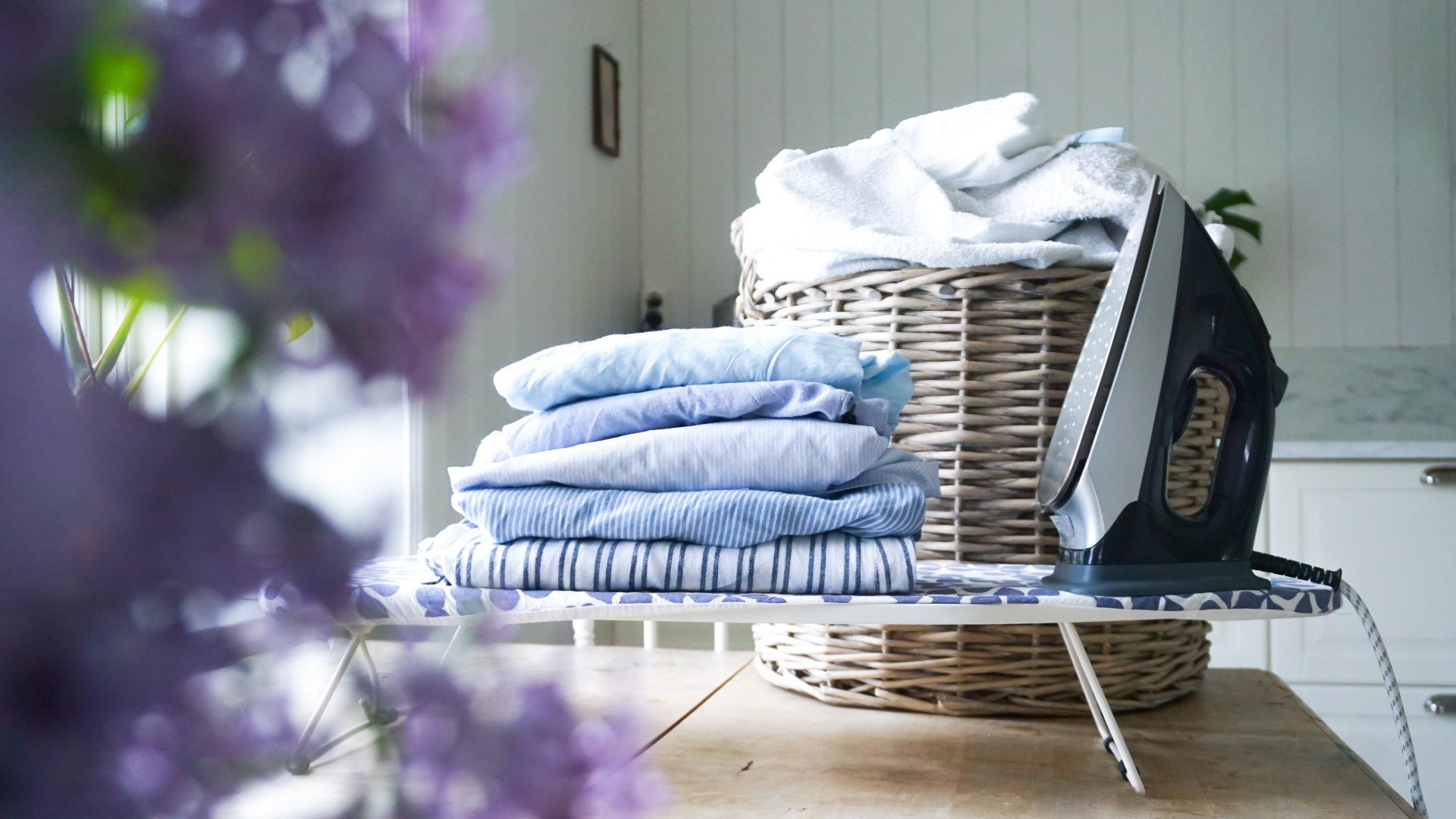
Within most steam irons, there will be a protective coating that, once again, can potentially be corroded if it comes into contact with vinegar. So in order to guarantee that your iron keeps working as it should – and safely – it’s best to avoid the combination.
Instead, when it comes to cleaning irons most only really need a wipe down with a microfiber cloth; when they’re off and cool, of course!
7. Small kitchen appliances
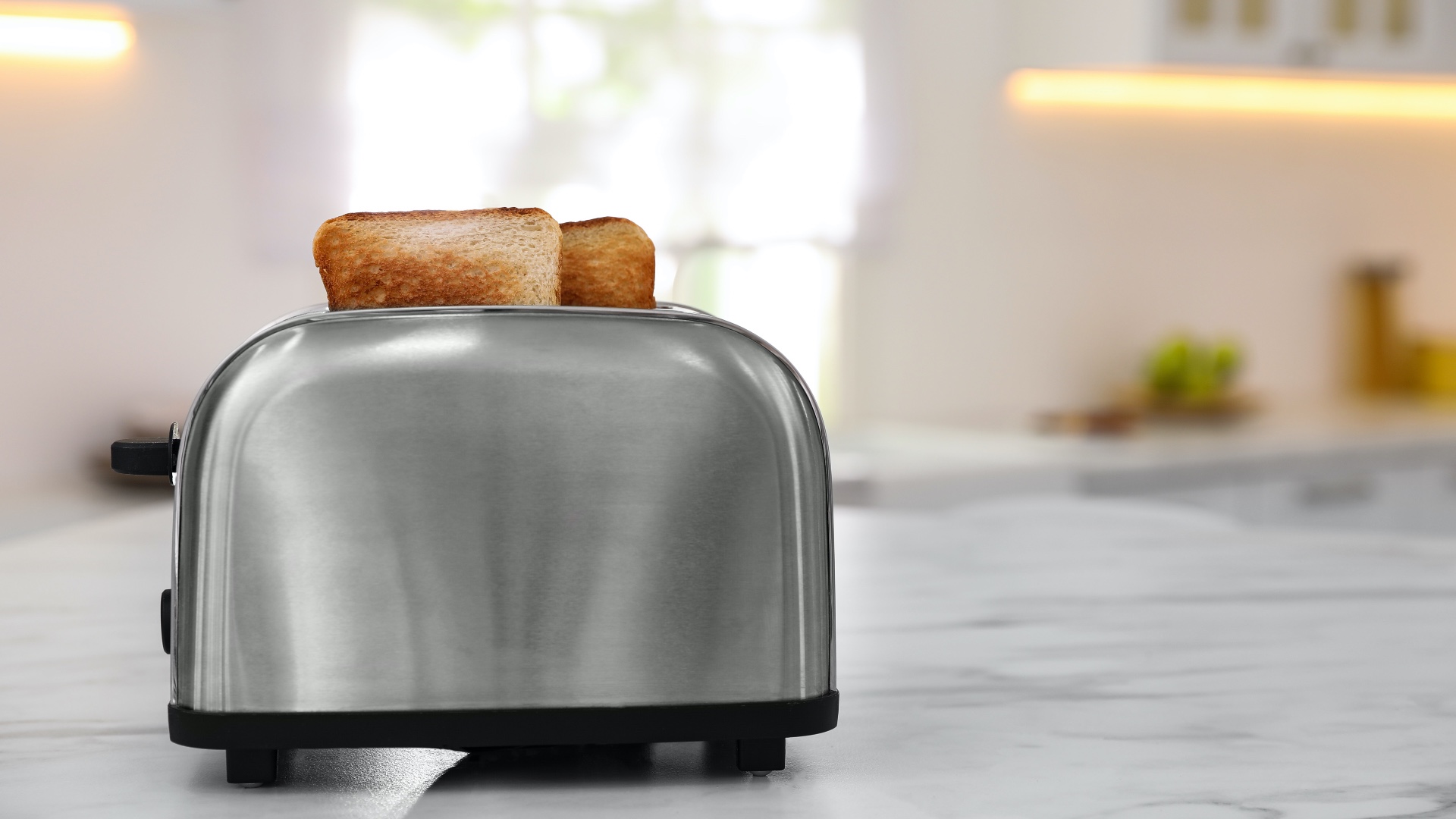
Sarah also shared that certain parts of your other small kitchen appliances probably aren’t best served by being cleaned with vinegar.
“The glass and plastic surfaces on most small appliances such as food processors, toasters, air fryers, and blenders are safe to clean with white vinegar,” she assured.
“However, you should avoid any of the rubber or metal parts that the vinegar can cause to corrode. This includes elements made of copper, aluminium, and stainless steel. Plus, stainless steel is more prone to rusting, which can be brought on by the acid in white vinegar." Instead, she suggests using dish soap in these areas specifically.
8. Egg stains or spills
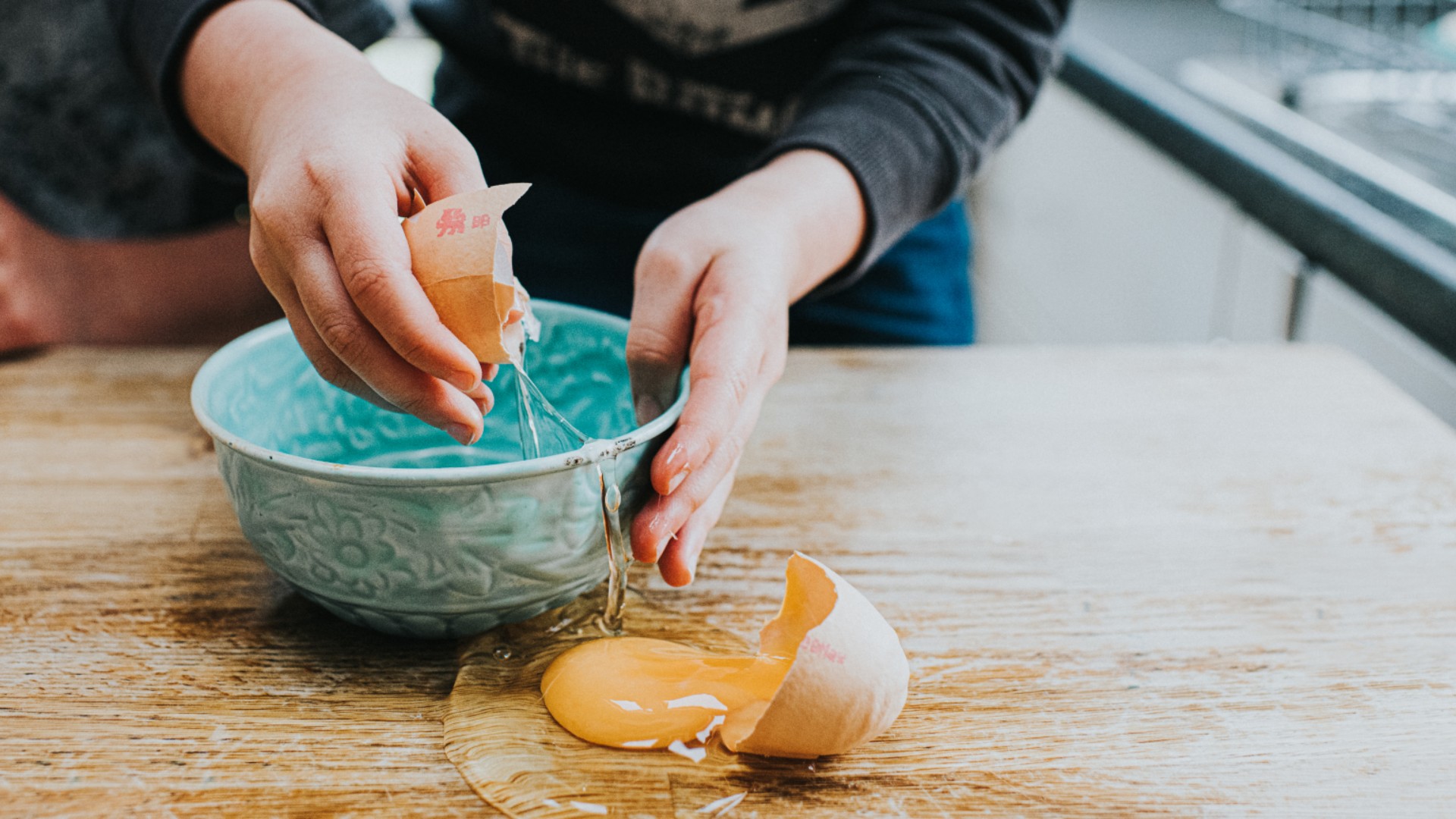
Cooking eggs can be messy, but because of the opposing nature of both egg and vinegar, it’s not wise to clean up the former using the latter. “White vinegar’s acidity will stiffen the egg substance instead of cleaning it, and even make it more difficult to remove,” Lily told woman&home.
How best should any egg mess be cleaned, then? “The easiest way to remove an egg stain is with a mixture of two teaspoons of liquid dish soap and two cups of cool water.”
9. Wooden furniture
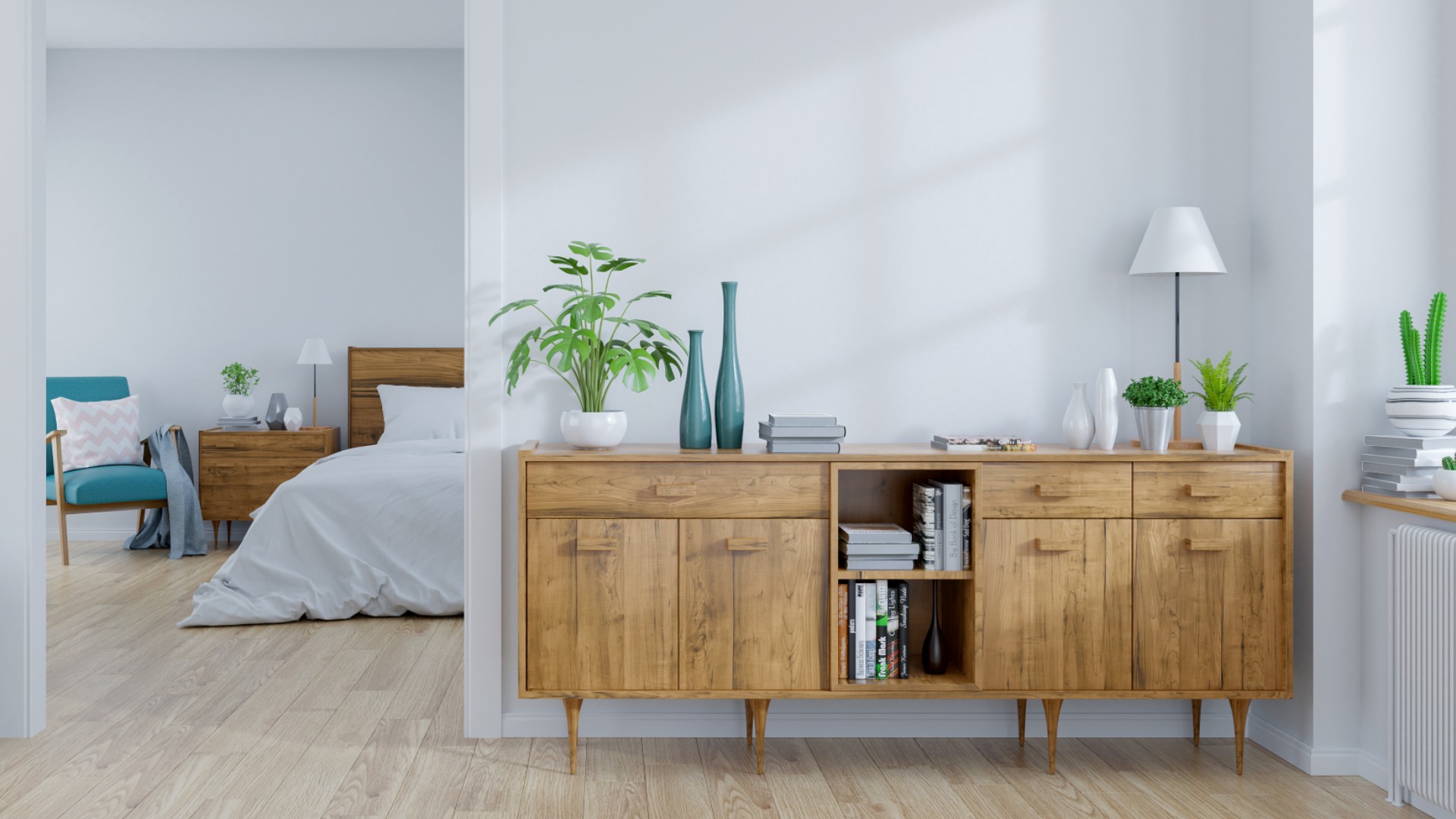
“Similarly to floors, vinegar should be avoided when cleaning wooden furniture as the acid can damage your furniture's finish," explains Smol’s cleaning expert, Kathleen Bell.
This, she explained, is because, again, vinegar can be too harsh for delicate and specialized surfaces like wood furniture. While vinegar has a pH of 2-3, "it's better to use a cleaner closer to pH 7, which is considered neutral like water," she told woman&home.
10. Mirrors
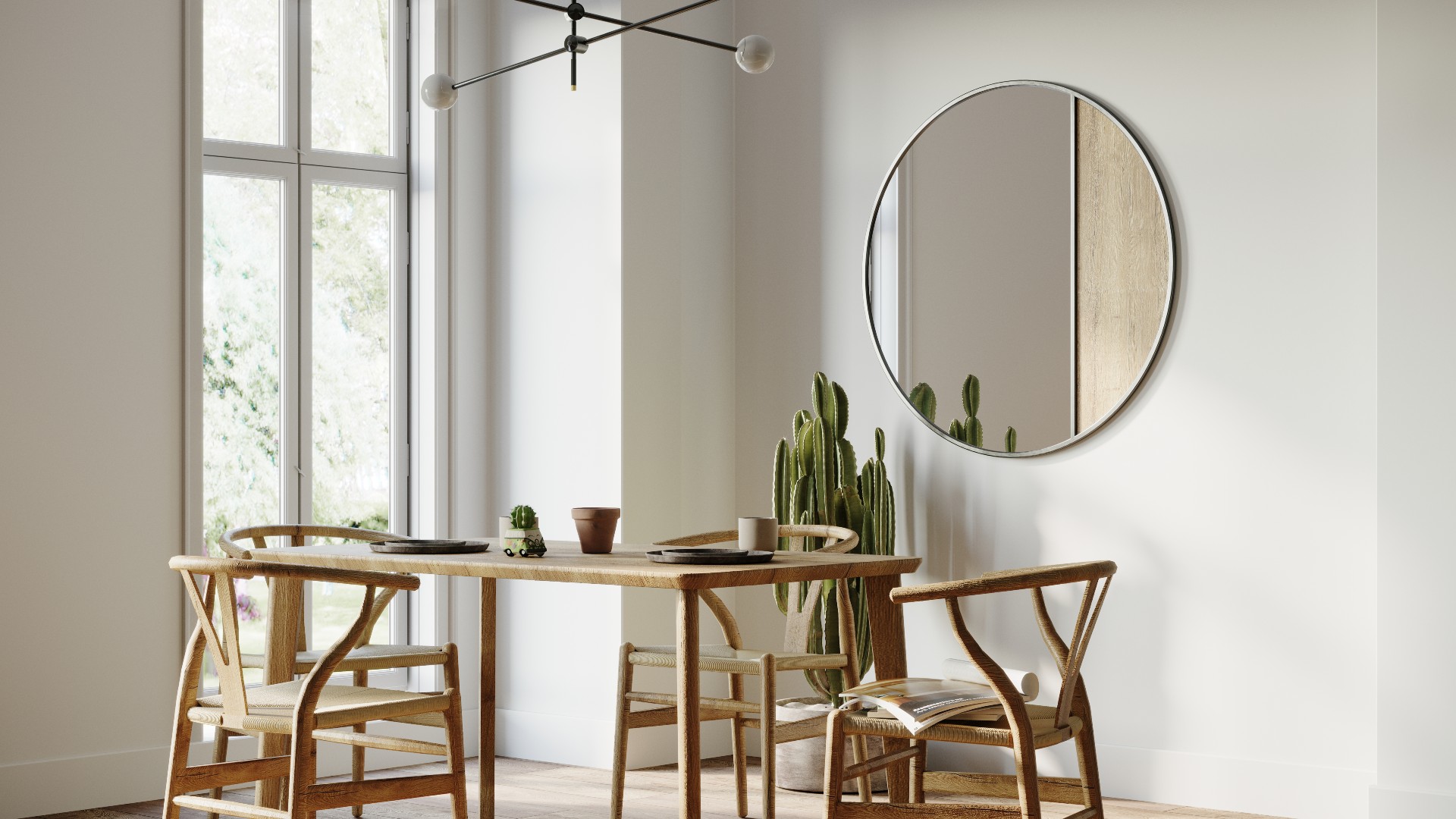
You might assume that vinegar can be used on your mirrors without a problem, seeing as it’s often advised as a solid way to clean windows. And it can be a great solution in the short term.
However, Sarah explains that it can actually damage the mirror over time, with repeated use. “The vinegar can penetrate through to the mirror’s silver backing. This is part of the mirror that makes it shine,” she said. If this is damaged, your mirror may end up less shiny, and more cloudy.
Instead, use a dedicated window cleaner (you can buy these almost anywhere), and a microfiber cloth to avoid scratching the surface.
11. Rubber seals
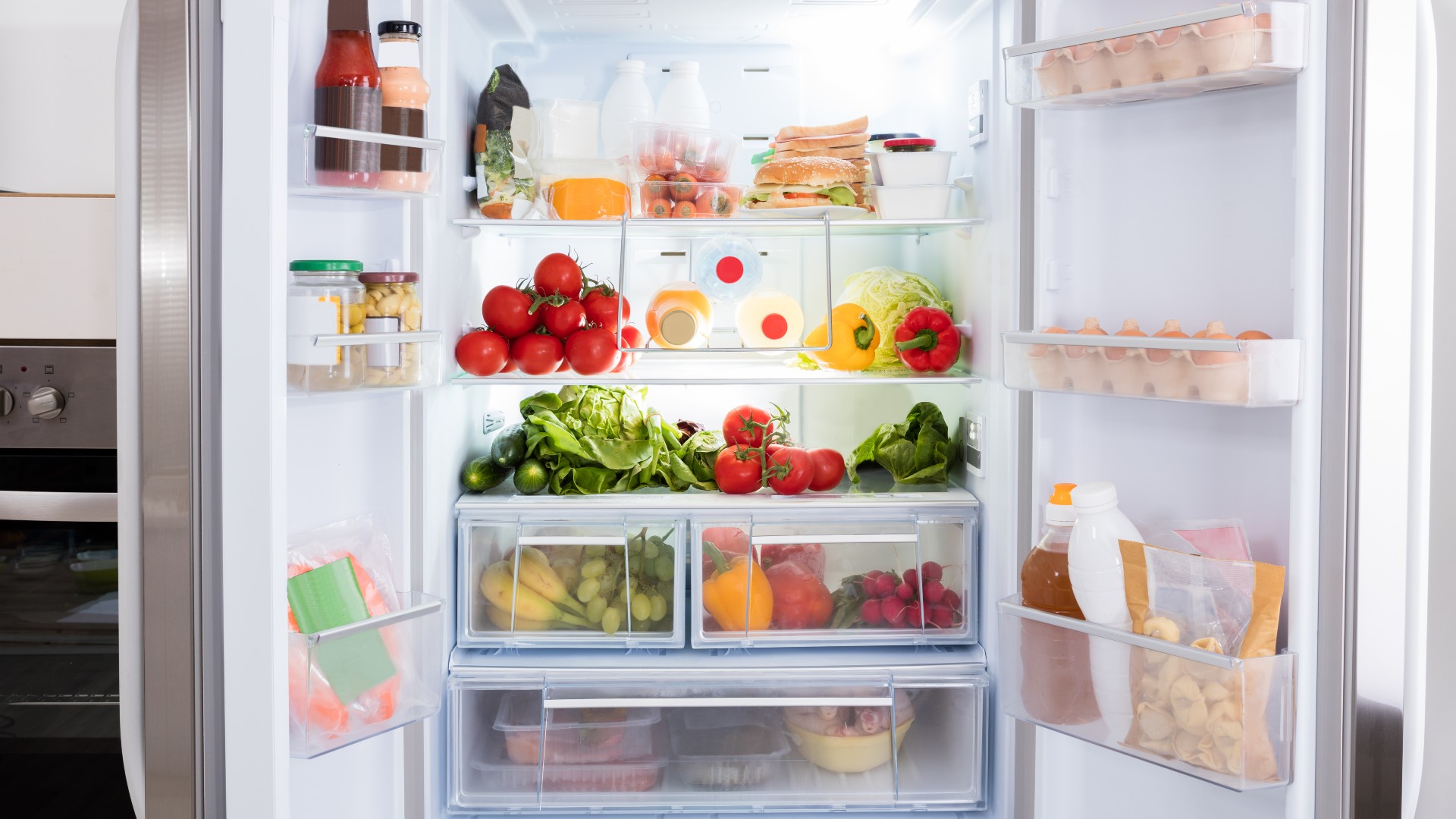
Cleaning items that have rubber seals (like when cleaning fridges or cleaning washing machines) with vinegar isn’t a bad idea, but you do need to be careful with the actual rubber seals within these items.
Lily warns that: “The strong acidity of white vinegar can wear down the rubber seals of your fridge, washing machine, or other types of appliance. The safest way to clean such parts is to dissolve baking soda in warm water.”
12. Electronic screens

While many of us likely aren’t cleaning our electronics (be it cleaning a TV screen, phone, laptop, or tablet) as often as we should, one way we absolutely shouldn’t be doing it is by using vinegar.
“Electronic screens are protected by a layer of protective film, which will be stripped away when cleaned with white vinegar,” Lily said. Instead, she suggests using a gentle microfiber cloth, and a cleaning solution specially formulated for screens.
13. Greasy surfaces
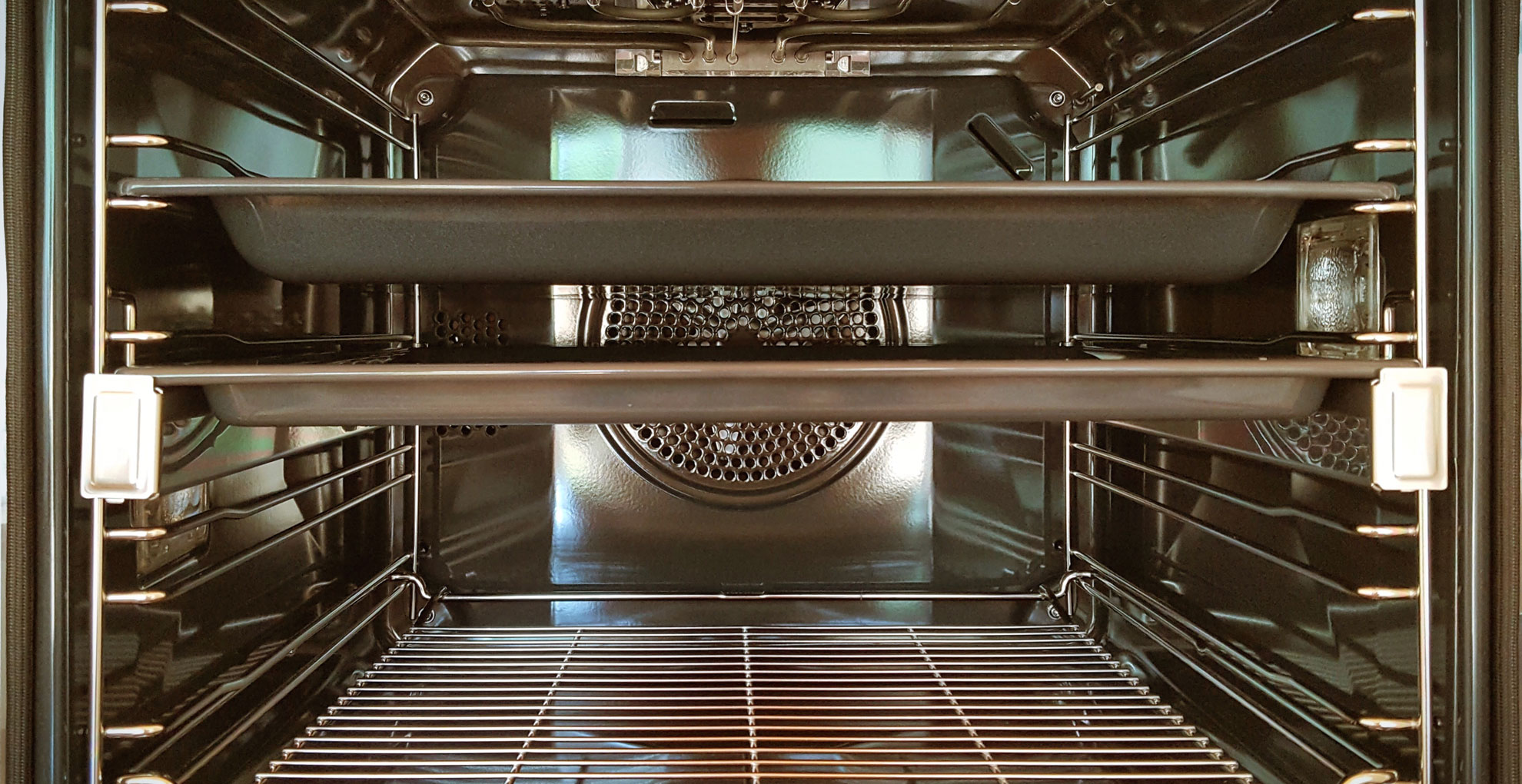
Finally, you may want to avoid cleaning greasy spots with vinegar, as it'll likely be a waste of your time.
“While not damaging, greasy surfaces like kitchen countertops or ovens are not best tackled by vinegar, as it is not generally very effective at cleaning grease,” Kathleen explained.
Instead, you’re much better off using your regular dishwashing liquid, or a kitchen spray that is specifically designed for the purpose of cutting through grease. And learning how to clean an oven without vinegar is easy enough!
How and why can vinegar be damaging to certain surfaces?
Vinegar is still considered to be a great natural cleaning tool, especially when cleaning and decluttering a bathroom or kitchen. “By and large, vinegar is a great all-rounder for the home, helping to bust limescale and removing stains,” says Kathleen.
But now we know what not to clean with vinegar, why exactly can it be damaging?
Interestingly, the true risk with vinegar comes if you use too much of it, too often. Kathleen explained, “When it comes to using vinegar in your home cleaning, it's not always a case of where you use it – but how much you use. This is because vinegar is a weak acid."
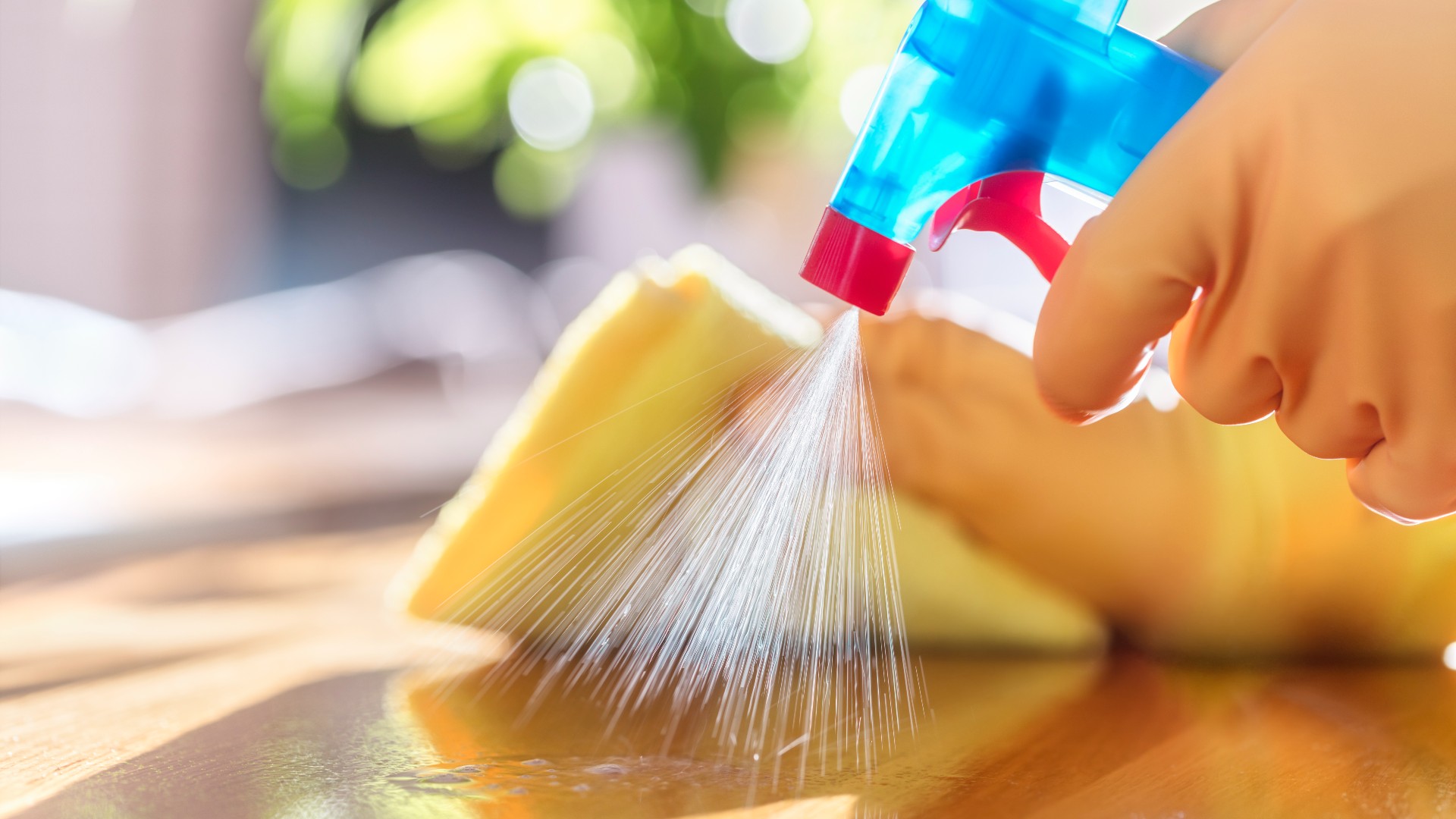
"Soaking the rubber gasket of your washing machine in vinegar, for example, for a long period many times could have some impact," she continued. "However, as vinegar is a weak acid, adding small amounts of diluted vinegar to a wash where it is further diluted by the water will not be strong enough to damage your machine.
She also advised that if you are concerned about using vinegar on any of your items, it's worth seeing how your items react initially. "I would recommend testing in a small unseen area first, and waiting a little while for any possible reaction."
If you do want to use vinegar to clean, in order to minimize its risk, Sarah affirmed that, “It’s always best to dilute vinegar down with water when using it for cleaning."
And, when cleaning with vinegar, be vigilant when it comes to safety. "Vinegar can burn your eyes and may damage eye tissue if you’re not careful with it. It’s also vital to avoid mixing vinegar with other cleaning solutions as this could cause toxic gases that may be harmful to your health."
Amy Hunt is an experienced digital journalist specialising in homes, interiors and hobbies. She began her career working as the features assistant at woman&home magazine, before moving over to the digital side of the brand where she eventually became the Lifestyle Editor up until January 2022. Amy won the Digital Journalist of the Year award at the AOP Awards in 2019 for her work on womanandhome.com.

